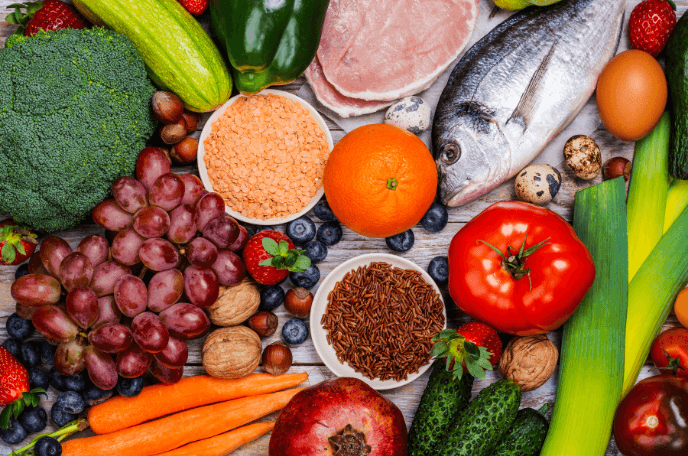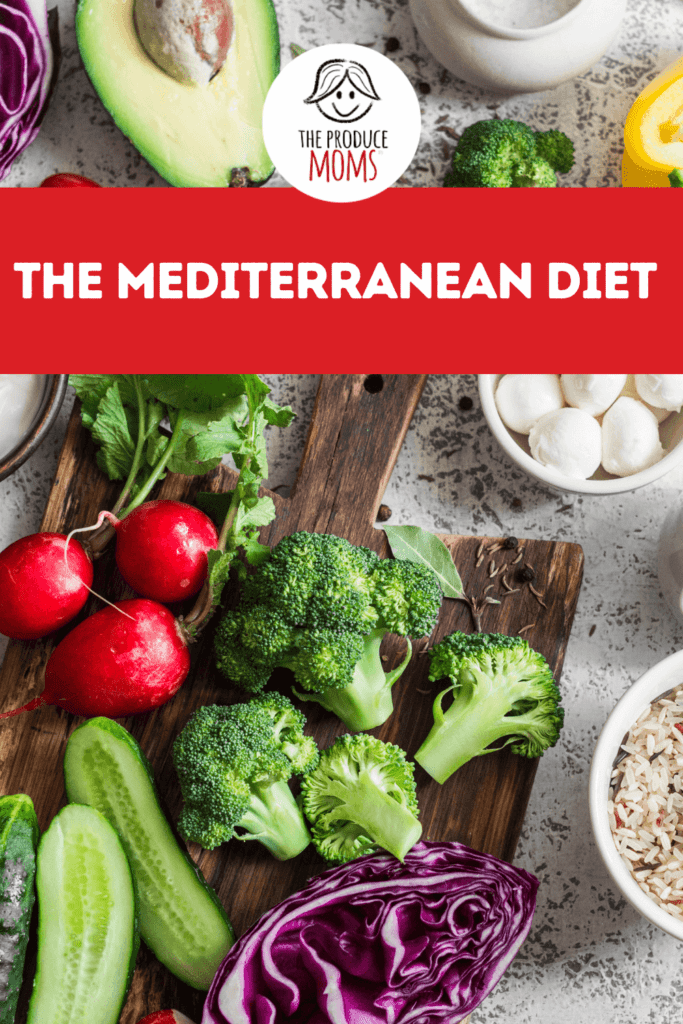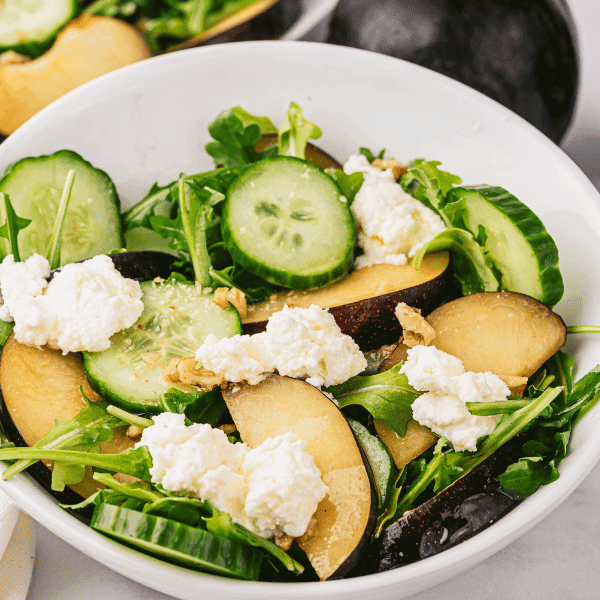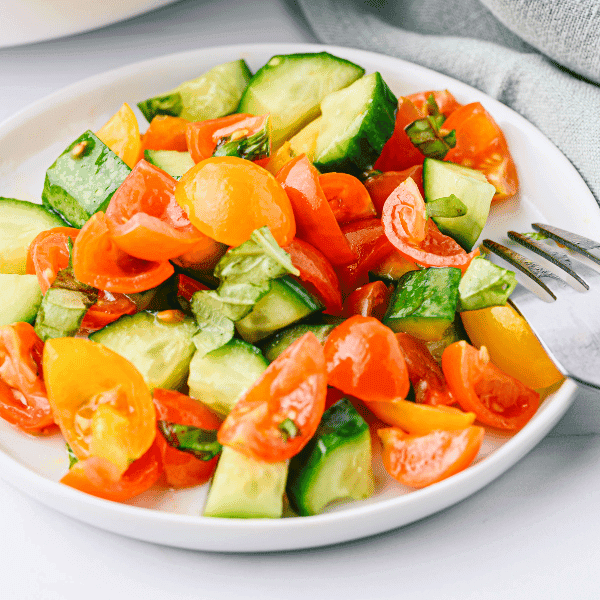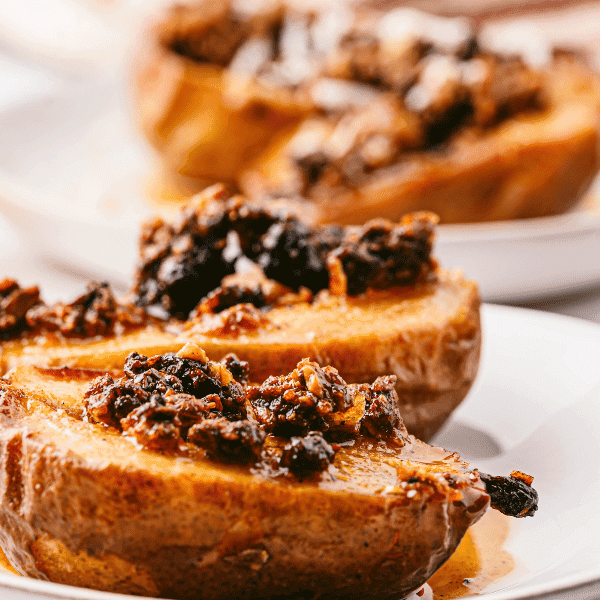The Mediterranean Diet
Oct 19, 2020
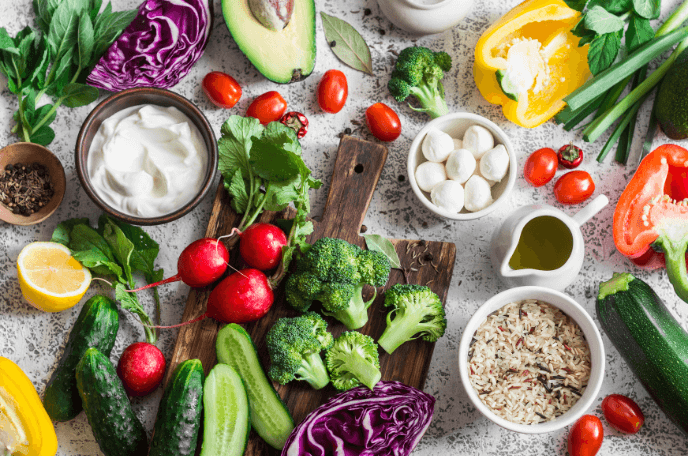
This post may contain affiliate links. Please read our disclosure policy.
The Mediterranean diet is an eating pattern that continues to gain interest. As a plant-based diet, this style of eating encourages increased consumption of fruits and veggies. In this blog, we provide you with what you need to know about the Mediterranean diet.
What is the Mediterranean diet?
The diet has actually been around for many years. First recognized around the 1960s, Italy and Greece set the foundation for the eating pattern known as the Mediterranean diet. The diet ultimately gained popularity when research started publishing evidence of health benefits. Today, the diet is viewed as a sustainable and healthy eating pattern that reduces risk of disease.

The Mediterranean diet emphasizes fruits, vegetables, nuts/seeds, whole grains, seafood and olive oil. The diet encourages seafood, eggs, poultry, cheese, yogurt in moderation and rare addition of red meat into meals.
Health benefits of the Mediterranean diet:
At this time, it is still unclear which components of the diet prevent disease since lifestyle habits also play a major role. This list only touches the surface of the health benefits being studied in relation to the Mediterranean diet.
- Prevent cognitive decline
- Reduce risk of high blood pressure and cholesterol
- Reduce mortality
- Improve management of Type 2 diabetes
- Promote gut health
There is one specific component of the Mediterranean diet that has been shown time and time again to reduce risk of disease – the emphasis on fruit and veggie consumption. A diet rich in produce is health promoting!
Nutrients of Concern:
When following a eating pattern that limits or eliminates a food group, remember to identify potential nutrients of concern. These are nutrients to add to your day in an another way to ensure you aren’t missing the essentials. Since the focus of the diet is on plant-based foods, here are a few nutrients to consider:
Protein – Important for cell growth and repair, immune health and nutrient transport, our bodies need protein. The Mediterranean diet encourages seafood, poultry and eggs as the primary animal protein sources while limiting red meat consumption. Beans, nuts, seeds and whole grains are great plant-based proteins to help meet daily requirements.
Vitamin B12 – Needed for red blood cell formation, brain function and energy production, vitamin B12 is an essential nutrient found in animal products. With the Mediterranean diet promoting plant-based foods, supplementation might be necessary as red meat is typically a primary source of vitamin B12. *Speak with your doctor before starting any dietary supplementation.
Calcium – Necessary for bone health, brain function and muscle contraction, calcium is required by our bodies. The Mediterranean diet does incorporate cheese and yogurt, which are both rich calcium sources. Plant-based calcium rich foods include beans, lentils, seeds and vegetables such as kale, broccoli and collard greens.
Foods included in the Mediterranean diet:
Fruits/Vegetables
There really isn’t a right or wrong fruit or veggie to pick in the produce section. Produce is packed with vitamins, minerals, polyphenols and fiber. Aim to fill your cart with a rainbow of fruits and veggies. Enjoy whole or incorporated into a recipe!
Nuts/Seeds
Packed with iron, protein, calcium and unsaturated fats, nuts/seeds are a stable in the Mediterranean diet. Add to salads, blend into smoothies or enjoy in a trail mix.
- Walnuts
- Pecans
- Peanuts
- Pistachios
- Flax seeds
- Chia seeds
- Pumpkin seeds
- Hemp seeds
- Sunflower seeds
Whole grains
Whole grains provide protein, iron, vitamins and minerals to our meals. Add to any breakfast, lunch or dinner recipe.
- Oats
- Brown rice
- Barley
- Quinoa
- Millet
Seafood
Seafood is the primary source of animal-protein in the Mediterranean diet. Suppling omega-3 fatty acids, protein and vitamin D, seafood can be enjoyed grilled, roasted or blackened.
- Salmon
- Tuna
- Sardines
- Shrimp
- Trout
Olive oil
Olive oil is the primary source of fat in the Mediterranean diet. It replaces animal fats such as butter or lard. As a monounsaturated fat, olive oil provides our bodies with nourishment and satiety.
Mediterranean Diet Recipes:
Check out some of our favorite recipes to boost your consumption of fruits and veggies:
Appetizer Recipes
- Chef Willy’s Tropical Avocado Ceviche Salad
- Grilled Red Bell Peppers with Olives and Feta
- Blueberry Guacamole
- Mushroom Bruschetta
Main Dishes
- Shrimp Tacos with Blueberry Mango Slaw
- Crockpot Celery Bean Soup
- Grilled Fish Wraps
- Broccoli Rabe with White Beans
Side Dishes
Tips for Success:
The ability of the Mediterranean diet to be health promoting comes from incorporating both nourishing food and lifestyle habits. These tips for success will help aim you in the right direction to boosting your intakes of nutrients while building healthy habits.
- Fill half your plate with fruits and vegetables at each meal and snack.
- Invite your friends and family to eat meals together.
- Enjoy red wine (only adults) in moderation at meals.
- Boost the flavor of foods with herbs and spices.
- Incorporate physical activity into your daily activities.
Have additional questions regarding the Mediterranean diet? Comment below!
Disclaimer: The health information shared by The Produce Moms is meant for education to inspire you and your family to eat more produce. Before making any lifestyle or diet changes, consult your physician or Registered Dietitian.

